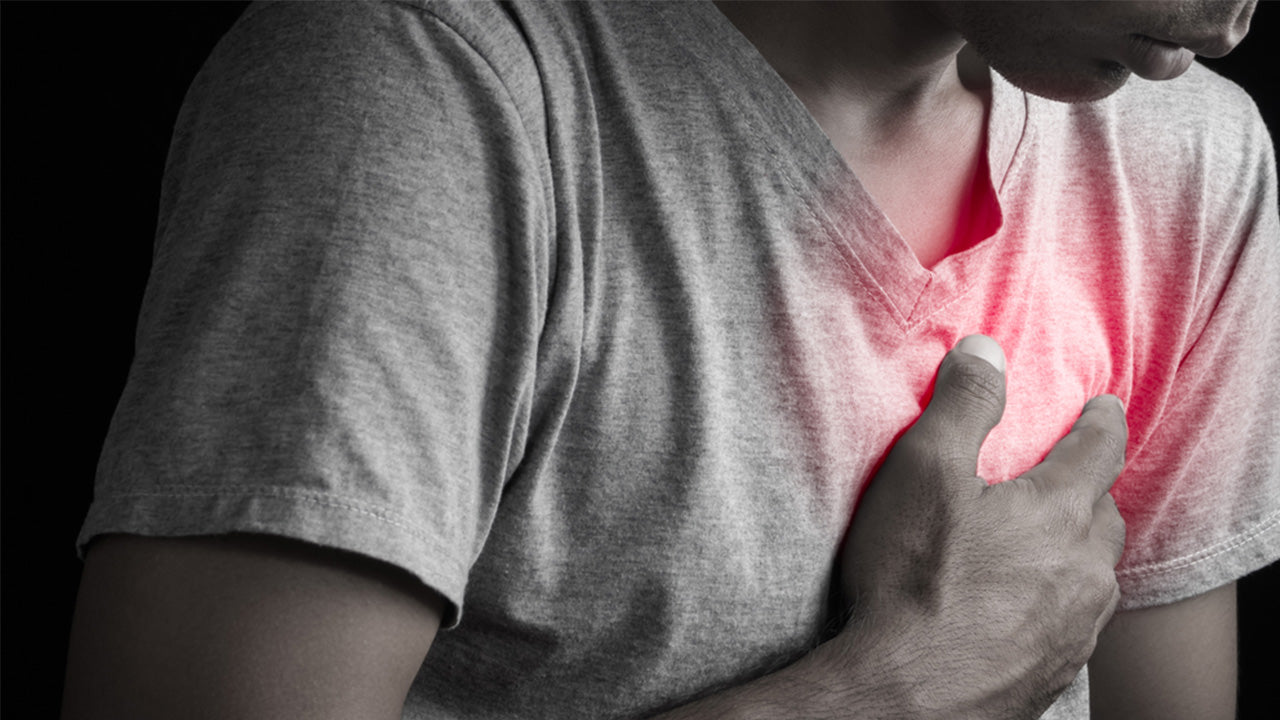What Is Meniere’s Disease? Causes, Symptoms, Treatment
 By: by Amino Science
By: by Amino Science

Meniere’s disease, a disorder of the inner ear, was first described in 1861 by the French physician Prosper Meniere. Approximately 615,000 people in the United States have Meniere’s disease according to National Institute on Deafness and Other Communication Disorders (NIDCD) estimates, with 45,500 new diagnoses occurring annually, primarily afflicting people in their 40s and 50s. Let's find out about the causes, symptoms, and available treatment for this vestibular disorder.
What Is Meniere’s Disease?
Also known as idiopathic endolymphatic hydrops, Meniere's disease arises from damage to the inner ear and causes extreme bouts of dizziness that can result in attacks of vertigo, the sensation of spinning. Sudden dizziness attacks can follow a brief siege of tinnitus or muted hearing.
Some Meniere’s disease sufferers have a single dizziness attack very infrequently, while others suffer numerous attacks consistently over a short period of time. The condition can trigger such an extreme case of vertigo that they have “drop attacks” in which they cannot maintain balance and end up dropping to the ground.
According to the American Academy of Otolaryngology, hearing loss is usually intermittent, happening primarily at the time of the vertigo attacks. Loud sounds, which can appear to be distorted, may cause discomfort. The hearing deficiency primarily includes the lower pitches, but over time this may include tones of all pitches. Sometimes, the hearing loss becomes permanent. Tinnitus and aural fullness (feeling as though the ear is clogged or full of pressure) may occur with changes in hearing ability, happen at the time of or just prior to attacks, or be constant.
While Meniere’s disease is chronic, it is treatable and the effects can be greatly reduced with lifestyle adjustments. Many people with Meniere’s disease go into spontaneous remission after a few years.
Meniere’s Disease Causes
While the exact cause of Meniere’s disease remains unknown, researchers believe it is prompted by fluid alterations in the inner ear tubes, allergies, autoimmune disorders, and genetic variations leading to aberrations in the quantity or control of endolymph fluid. Specific attention has been devoted to the labyrinth of the inner ear.
Symptoms of Meniere’s disease arise when fluid accumulates in the labyrinth. The labyrinth is made up of the otolithic organs and semicircular canals (referred to as the organs of balance) and the cochlea (the organ of hearing). Because the fluid buildup impairs both hearing and balance signals that go from the brain to the inner ear, someone with Meniere’s disease suffers from vertigo and other side effects.
Some researchers believe that Meniere's disease occurs due to narrowing of the blood vessels, similar to the vasoconstriction associated with migraines.

Meniere’s Disease Symptoms
Meniere’s disease symptoms are referred to as “episodes” or “attacks” and can manifest as:
- Vertigo episodes as brief as a few minutes and as long as a day
- Vertigo symptoms such as sweating, nausea, vomiting
- Hearing loss
- A ringing in the ears (tinnitus)
- Balance issues, or a complete loss of balance
- Aural fullness (feeling like the ear is congested)
- Headaches
Meniere's disease symptoms occur simultaneously (two to three at a time) but don't typically arise between episodes.
Meniere’s Disease Diagnosis
Doctors, typically an otolaryngologist (ear, nose, and throat doctor, or ENT), will order a variety of tests to examine balance and hearing and to make sure it's not a condition that presents with symptoms similar to Meniere’s disease.
During an audiometry (hearing test), you'll wear headphones and listen for noises of numerous volumes and pitches to see if you can register the difference between similar sounds and whether the issue affects one or both ears.
To determine the cause of hearing loss, an otolaryngologist will use an electrocochleography (ECog)and/or auditory brainstem response (ABR) test to see if the issue originates from the inner ear or nerve in the ear. An ECog checks electrical activity in the inner ear while the ABR test assesses hearing nerve function and the brain's hearing center.
Because Meniere's disease causes a loss of balance, balance tests are a common diagnostic tool, specifically an electronystagmography (ENG). The balance response in the inner year stimulates eye movements, so during an ENG electrodes are placed around the eyes to see how eye movements are registering. To trigger the balance response, your doctor with push hot and cold water into the ear. Abnormal involuntary eye movements signal an inner ear problem; the issue might not be Meniere's disease but could be stemming from other ear damage or impacted ear wax.
Posturography testing tells the doctor which part of the balance system is malfunctioning by testing how you react to balance challenges while barefoot and secured in a safety harness.
Rotary chair testing, which tracks eye movements while a rotary chair slowly turns, shows the doctor whether the symptoms being experienced are caused by a malfunction in the ear or the brain.
Vestibular evoked myogenic potential (VEMP) testing assesses how sensitive the inner ear vestibule is to sound.
Symptoms of diseases such as multiple sclerosis (MS) or brain tumors can mimic those of Meniere's disease, so your health care provider may also order a head magnetic resonance imaging (MRI) or a cranial computed tomography (CT scan) to make sure there is not an underlying problem with the brain.
An ABR, CT, or MRI can help diagnose a tumor on the hearing and balance nerve that may be the culprit behind the symptoms, although such tumors are rare.
Meniere’s Disease Treatment
During an attack, doctors recommend lying flat and still and focusing on an unmoving object. People with the disease sometimes fall asleep while lying down and feel better when they wake up.
Diet can go a long way toward decreasing the amount of fluid in the inner ear and alleviating symptoms. Drinking 6 to 8 glasses of water per day, sticking to a low-salt diet, and taking diuretics (water pills) can keep fluid from building up. Experts recommend steering clear of:
- Foods high in salt
- Caffeine
- Chocolate
- Alcohol
- Foods that contain monosodium glutamate (MSG)
Lifestyle changes that may be helpful are:
- Taking it easy during vertigo attacks
- Eating regularly to regulate fluids
- Keeping stress and anxiety levels low
- Quitting smoking
- Avoiding allergens
Management of Meniere's disease typically includes a combination of the following.
- Therapy: Cognitive therapy can help people with Meniere’s disease cope with symptom attacks that can catch them unaware, thereby reducing anxiety so they are better prepared for future flare-ups.
- Medications: Prescription drugs including meclizine, diazepam, glycopyrrolate, and lorazepam can help relieve dizziness and shorten an attack. A diuretic can reduce fluid in the body to lower the amount of fluid and fluid pressure in the inner ear. Injecting gentamicin, an antibiotic, into the middle ear can subdue vertigo but comes with the serious side effect of hearing loss. The drug may do irreparable damage to the inner ear's microscopic hair cells needed for hearing. Another injection therapy using a corticosteroid can reduce dizziness without the risk of hearing loss. And anti-motion sickness drugs such as Antivert and Valium can help with episodes of vertigo.
- Rehabilitation: Vestibular rehabilitation that trains the brain to make up for the imbalance between the ears can be administered by a physical therapist. An audiologist might treat hearing loss by prescribing a hearing aid.
- Devices: A new device for Meniere’s disease sends periodic air pressure pulses to the middle ear from its base at the outer ear. The air pressure keeps dizziness at bay by exerting an effect on endolymphatic fluid. This mechanical pump is applied to the ear canal for 5 minutes 3 times a day.
- Surgery: Surgical procedures may be used to decompress the endolymphatic sac. An operation called an endolymphatic sac procedure can reduce fluid production and drain fluid from the inner ear. Another procedure is used to cut the vestibular nerve. Vestibular neurectomy cuts the balance nerve as it exits the inner ear and goes to the brain. It may cure vertigo attacks permanently. Labyrinthectomy and eighth nerve section, used when the balance and hearing mechanism in the inner ear are destroyed on one side, usually offer the highest rates for control of vertigo attacks. Improve surgical outcomes with essential amino acids. Discover how here.
Understanding the causes of Meniere’s disease is the first step toward finding effective treatment and prevention methods. The NIDCD is aiding ongoing scientific research to determine the most reliable dose of gentamicin that won't cause hearing loss, to develop a tiny in-ear device using a programmable microfluid pump that will treat the inner ear with drugs to control vertigo, and to develop strategies to alleviate the dizziness that comes with Meniere’s disease. We’ll keep you abreast of developments as they emerge!

Up to 25% off Amino
Shop NowTAGS: conditions
Join the Community
Comments (0)
Most Craveable Recipes




 833-264-6620
833-264-6620



















